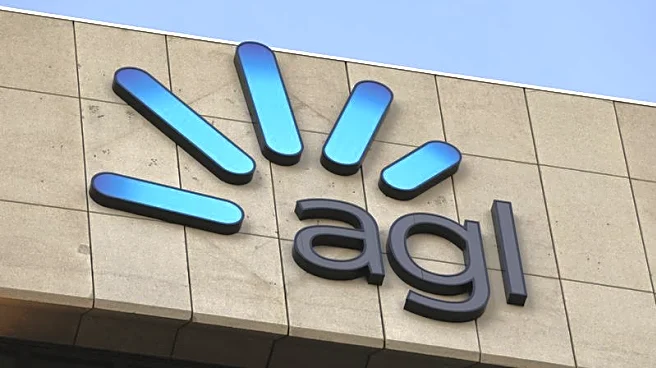What is the story about?
What's Happening?
Chinese students who once viewed a U.S. education as a pathway to prestigious jobs are now facing significant challenges due to geopolitical tensions. The Trump administration's visa policies, which were initially set to cancel visas for Chinese students, have created uncertainty. Although these policies were paused following a trade discussion between President Trump and Chinese President Xi Jinping, the impact remains. Many Chinese students, like Barry Lian, have found their U.S. education to be a hindrance rather than a help in the Chinese job market. Lian, who studied in the U.S., had his visa revoked, forcing him to return to China where he struggled to find employment. This situation is compounded by a growing suspicion in China towards foreign-educated graduates, with some employers fearing espionage risks.
Why It's Important?
The situation highlights the broader implications of U.S.-China relations on education and employment. Chinese students, who are significant contributors to U.S. universities, may reconsider studying abroad, impacting the financial health of these institutions. Additionally, the suspicion towards foreign-educated graduates in China reflects a shift towards nationalism and self-reliance under Xi Jinping's leadership. This inward focus could affect China's integration with global markets and its ability to attract international talent. The challenges faced by these students underscore the real-world impact of geopolitical tensions on individuals' career prospects and the global education landscape.
What's Next?
As tensions between the U.S. and China continue, the future for Chinese students in the U.S. remains uncertain. Universities may need to adapt by diversifying their student base and finding new revenue streams. Meanwhile, Chinese graduates may increasingly seek opportunities in countries with less restrictive policies. The Chinese government's stance on foreign education and employment could further evolve, potentially leading to policy changes that either ease or exacerbate the current challenges faced by returnees.
Beyond the Headlines
The situation also raises ethical questions about the role of education in diplomacy and the responsibilities of universities in supporting international students. The cultural and political dynamics at play could lead to long-term shifts in how countries perceive and value foreign education. This could influence global talent flows and the future of international collaboration in education and research.
















